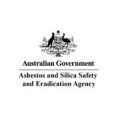Pandemic review shows "fatigue"
 Australia's COVID-19 review warns future pandemic plans must address serious shortfalls.
Australia's COVID-19 review warns future pandemic plans must address serious shortfalls.
A government-commissioned report examining Australia’s pandemic response has highlighted essential areas for improvement, emphasising the need to rebuild public trust, refine emergency coordination, and address public health gaps.
The report, commissioned by the Department of the Prime Minister and Cabinet, praised initial “courageous” measures such as early lockdowns, border closures, and the National Cabinet model, which facilitated rapid government cooperation.
This initial approach reportedly saved lives and eased economic impacts, yet extended restrictions and shifting messaging gradually diminished public trust.
“Trust has also been eroded, and many of the measures taken during COVID-19 are unlikely to be accepted by the population again,” reviewers stated.
The review outlined nine key recommendations and areas for immediate action to strengthen resilience for future health crises.
It called for enhanced federal coordination through a national pandemic plan involving all levels of government to outline support for vulnerable populations such as First Nations communities, people with disabilities, and remote and culturally diverse groups.
The plan would detail access strategies for essentials like food and medicines, and specify roles for quarantine, stockpiling, and border policies.
Among top priorities is the establishment of an Australian Centre for Disease Control (CDC) to act as a national health authority, managing disease monitoring, medical stockpiles, and coordinating public health responses.
The CDC would serve as a unified information source, enhancing Australia’s surveillance and emergency adaptability by integrating economic, health, and social data.
The report emphasised support for physical and mental health services, especially those missed during COVID-19, and advised expanding child and youth mental health support.
It also recommended ongoing evaluations of COVID-19 protocols, including vaccine compensation schemes, and training exercises to ensure public health readiness across all government levels, using models from South Korea and Taiwan.
Poor communication during COVID-19 emerged as a key factor undermining trust, with confusing or inconsistent government messages creating public uncertainty.
The report proposes a unified communication strategy that includes community voices to ensure clarity, inclusivity, and transparency in crisis communication.
Also highlighted were digital security and privacy, as the pandemic revealed gaps in data infrastructure and oversight of contact-tracing apps, prompting concerns over data management.
Noting the need for an equitable approach, the report suggests targeted plans to meet the needs of at-risk groups who often had less access to healthcare, such as remote or culturally diverse communities.
The report says Ensuring a coordinated pandemic response for such groups remains central to future plans.
The review acknowledged Australia’s rapid initial responses but noted challenges in maintaining coherence as state and federal measures diverged.
Public dissatisfaction with travel restrictions and the quarantine system, as well as inconsistencies across states, contributed to decreased compliance.
The reviewers found hotel quarantine logistics to be rushed, with unclear responsibilities and inadequate infection control.
They recommended alternatives, such as self-isolation, if appropriate measures and evidence exist.
Other findings included mixed results from state lockdowns and vaccine mandates.
The report warns that long-term or broad lockdowns have likely lost public support, urging only short, targeted restrictions in the future.
Vaccine mandates, while effective, may also need to be carefully balanced with public acceptance to prevent “vaccine fatigue”.
Health Minister Mark Butler welcomed the report’s findings, calling for a “high-level playbook for the next pandemic”, with cabinet pledging to enact changes including establishing the CDC by January 2026.
Experts maintain that while Australia’s early pandemic measures were largely successful, building trust and enhancing data, workforce readiness, and government coordination are essential to handling future health crises with clarity and resilience.







 Print
Print


